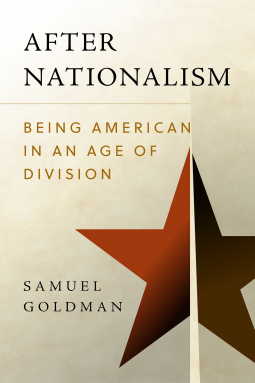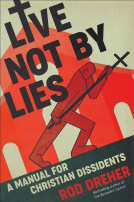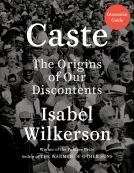
After Nationalism
Being American in an Age of Division
by Samuel Goldman
This title was previously available on NetGalley and is now archived.
Send NetGalley books directly to your Kindle or Kindle app
1
To read on a Kindle or Kindle app, please add kindle@netgalley.com as an approved email address to receive files in your Amazon account. Click here for step-by-step instructions.
2
Also find your Kindle email address within your Amazon account, and enter it here.
Pub Date Jun 04 2021 | Archive Date May 14 2021
Talking about this book? Use #AfterNationalism #NetGalley. More hashtag tips!
Description
Nationalism is on the rise across the Western world, serving as a rallying cry for voters angry at the unacknowledged failures of globalization that has dominated politics and economics since the end of the Cold War. In After Nationalism, Samuel Goldman trains a sympathetic but skeptical eye on the trend, highlighting the deep challenges that face any contemporary effort to revive social cohesion at the national level.
Noting the obstacles standing in the way of basing any unifying political project on a singular vision of national identity, Goldman highlights three pillars of mid-twentieth-century nationalism, all of which are absent today: the social dominance of Protestant Christianity, the absorption of European immigrants in a broader white identity, and the defense of democracy abroad. Most of today's nationalists fail to recognize these necessary underpinnings of any renewed nationalism, or the potentially troubling consequences that they would engender.
To secure the general welfare in a new century, the future of American unity lies not in monolithic nationalism. Rather, Goldman suggests we move in the opposite direction: go small, embrace difference as the driving characteristic of American society, and support political projects grounded in local communities.
Advance Praise
"Samuel Goldman offers readers a concise, learned, and profound reflection on the elusive nature of American national identity, whether defined in terms of covenant, crucible, or creed. Given the current divided condition of our polity and culture, I am hard-pressed to conceive of a more timely and essential book."--Andrew Bacevich, president of the Quincy Institute for Responsible Statecraft
Available Editions
| EDITION | Other Format |
| ISBN | 9780812251647 |
| PRICE | $24.95 (USD) |
Average rating from 7 members
Featured Reviews
 richard b, Reviewer
richard b, Reviewer
The author, Samuel Goldman, a professor at GW, is extremely well-read and his prose is outstanding so you should read this short book. That said, my major complaint is that he omitted the two major reasons that our nation may be unable to obtain any form of nationalism today. These are politics and genetics. In the current era, we are experiencing the greatest resurgence of collectivism (socialism and neo-Marxism) at the expense of individualism (freedom and liberty) that has not been witnessed since the 1960s. Roughly, one-third of all Americans favor getting rid of capitalism and this figure is well over 50% among our nation's elites. This has resulted in the biggest political split that has occurred in decades and will continue until the left-wing professoriate learn that collectivism has never worked anywhere and has in every instance that it has been attempted resulted in totalitarian governments that have imposed only misery and unhappiness. In short, socialism can only work by making everyone equally poor.
Prof. Goldman's second major omission is the recent (during the last 20 years) findings that almost every complex human behavioral trait is almost entirely rooted in one's genes. The nature argument has almost completely overwhelmed the belief in nurture. Scientific findings have demonstrated that "shared environment" plays virtually no role in human socialization and that a "non-shared environment" is both idiosyncratic and random thereby rendering all attempts at amelioration useless as the past 50 years have demonstrated.
Regardless, you should still read Goldman's book!
 Reviewer 631651
Reviewer 631651
Goldman opens this book with a helpful distinction between nationalism and patriotism and ultimately develops his position with contextual clarity and historical influences regarding America's origins. In considering the future of America, Goldman looks at the past. In a time of great divisiveness, I'd recommend this book to anyone curious about how an "us vs. them" ideology is built and what may come in the aftermath of unaddressed political chaos.
This is a brisk and readable survey of the "nationalist" push in American politics, and a fair treatment of why the term is often ill-defined (and ill-suited for the contemporary context when it is more precisely defined.) Goldman is a deft guide to some of the drawbacks of common understandings of "nationalist" politics, and is clear that he thinks those (such as National Review's Rich Lowry and Ramesh Ponnuru) who advocate for a "benign nationalism" end up putting a heavy emphasis on the former word and less on the latter; in short, patriotism.
 Reviewer 677700
Reviewer 677700
Thank you for a copy of this pub in exchange for honest feedback. I am approaching this feedback as someone who has as PS/IR background, but I don't want to pontificate about my views on the content. Rather, I'd like to say that I think this publication is timely and poignant. I requested to read this publication because I think the divergence in the US (and several other nations currently) is interesting, and ultimately, turning to those who have trained in this area can sometimes spark new discourse. I was a bit surprised to see that this was a really in-depth discussion which boiled down to the roots of the notion of nation/nationalism. This pub was a really well written exploration of difficult and sometimes convoluted concepts that are highly relevant even outside the sphere of academia.
Readers who liked this book also liked:
Silvia Moreno-Garcia
Historical Fiction, Literary Fiction, Sci Fi & Fantasy









